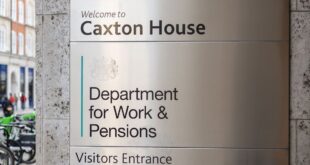
Millions of workers could be left nursing a £100,000 shortfall in their pension pots due to delays by Rachel Reeves in implementing long-awaited reforms, experts have warned.
The Chancellor is under fire for failing to act swiftly on plans to increase minimum workplace pension contributions – a move widely seen as vital to help savers avoid poverty in old age. Despite cross-party support for reforms first proposed nearly a decade ago, the Treasury has admitted changes will not be brought in before the end of this Parliament – meaning nothing will happen until at least 2030.
Pensions policy expert Sir Steve Webb, a former Lib Dem minister and now with Lane Clark & Peacock, warned: “If you delay these reforms by five years, someone starting work now and on average earnings could have a pension pot that is £100,000 smaller by the time they retire.” Under current rules, employees are automatically enrolled into workplace pensions at age 22 and contributions are only paid on earnings above £6,240 – leaving younger and lower-paid workers falling through the cracks.
The long-discussed reforms would lower the age to 18 and require contributions on every pound earned, dramatically boosting long-term savings – particularly for part-time and lower-income workers, many of them women. The Government’s own 2017 review concluded these reforms were essential to ensure savers had “an adequate income in retirement”.
Former pensions minister Baroness Ros Altmann told the Telegraph: “Delay has already gone on far too long. Every year that passes makes it harder for people to build up decent pensions. We are already facing a looming retirement income crisis.”
Experts warn that even under current contribution rates – eight per cent of earnings – millions are not saving nearly enough. The Institute for Fiscal Studies has estimated most workers need to be putting aside at least 12-15 per cent to have a comfortable retirement.
Tom Selby, director of public policy at AJ Bell, said: “Delaying these reforms will leave millions of low earners short-changed and make their retirement prospects significantly worse.”
In response, the Treasury said: “We remain committed to implementing the reforms to automatic enrolment, enabling more people to save earlier and save more – helping them to achieve the retirement they want. We will set out the timeline to implement these changes in due course.”
But industry leaders are increasingly alarmed by the lack of urgency from the new government, despite its pledges to improve living standards and tackle inequality. Steve Webb added: “The longer we leave it, the worse this problem will become – particularly for younger savers who will lose out on years of compound growth.”
 Latest World Breaking News Online News Portal
Latest World Breaking News Online News Portal






